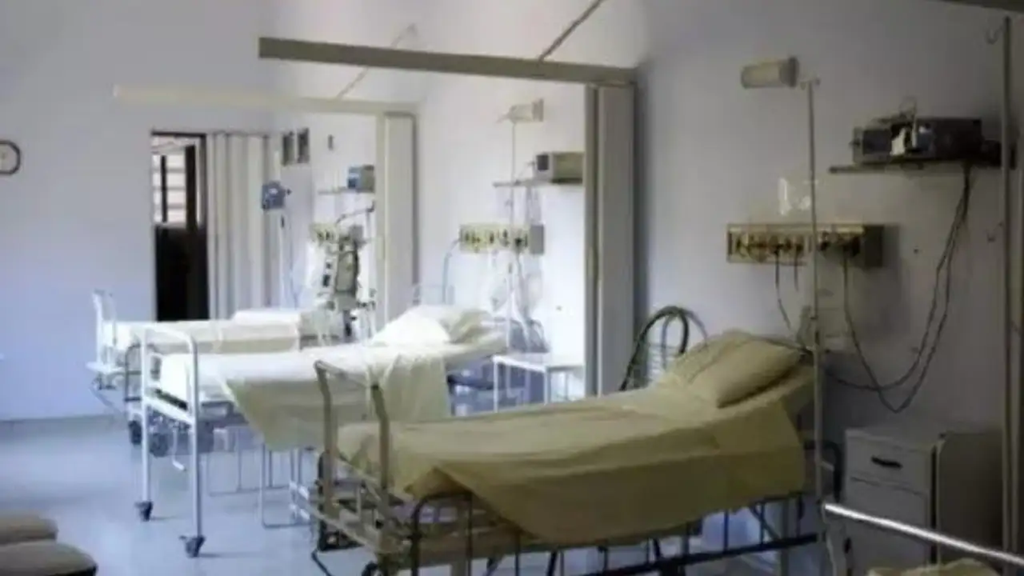Telling a child that he or she is living with HIV is not easy. Biénne Huisman spoke to a father and some doctors about how one can approach the issue.
“It was very, very critical to me. It was an albatross around my neck. It was something that caused a deep persistent anxiety in me…”
This was how a 61-year-old retired schoolteacher from a township in the East Rand described the feelings he had around disclosing to his son that he (the child) was born with HIV.
The man, who taught life orientation skills and history, agreed to be interviewed on the condition of anonymity.
He said:
With my son, it became late in his life because I didn’t know how to do it – how to tell him. So I postponed and postponed. It was becoming increasingly difficult.
Three months after the boy was born in 2001 at the Far East Rand Hospital in Springs, the child’s mother passed away from an HIV-related illness. At the time, hospital staff referred the widowed father and baby boy to HIV and Aids treatment nonprofit organisation Right to Care where Dr Leon Levin diagnosed the child with HIV.
READ: Patient humiliation rife in state clinics
“My wife died three months after giving birth. I didn’t realise then that she had HIV and that I have HIV. I took my son to Dr Levin, who tested him. I started giving my son ARVs. I had to employ someone to look after the child while I was working, and this woman didn’t truly understand adherence and, at times, did not give him all his medicine. So she defaulted, which is very bad. It was a time when not much information was available, the time of the president [Thabo Mbeki] denying that HIV causes Aids.”
Also in 2001, young orphan Nkosi Johnson died of Aids in Johannesburg at the age of 12. Johnson made headlines the previous year when he told the International Aids Conference in Durban “care for us and accept us. We are all human beings”.
‘Taking medication as a team’
As the years went by, the man says, the burden in his heart grew bigger.
He says:
We would go to Dr Levin every six months for a check-up. I would tell my son that he was sick, but I did not explain why.
Eventually, the man felt comfortable allowing Levin to assist in sharing the news with his son.
“Around the age of 16, Dr Levin did a full disclosure with my son. It was the heaviest weight off my shoulders. After that intervention, we could speak properly. We had a heart-to-heart, and we started taking medication as a team. This made it easy for me to explain to the child the advantages of adhering [to ARV treatment], the meaning of defaulting [failing to take ARV treatment regularly, as prescribed], and all these consequences. I could discuss with my son the importance of adherence because when you default, the medication becomes resistant. I told him if you take your medication, you can live a long life. You can get married and you can have children.”
READ: Caregivers of perinatally acquired HIV face high risk of depression
Despite the substantial progress South Africa has made in fighting HIV over the last decade and a half, HIV in children is still quite common. According to the latest estimates from Thembisa – the leading mathematical model of HIV in South Africa – around 238 000 children (under the age of 15) were living with HIV in the country in 2021. There were just over 8 300 cases of mother-to-child transmission of HIV last year. While still a staggering problem, this is a significant improvement from the early 2000s when the number was around 74 000.
Disclosure – how to get it right
Sharing news of being born with HIV to a child (perinatal infection) is perhaps an often overlooked, deeply tender aspect of the country’s broader HIV response. The national department of health recommends “partial disclosure” from three years old and “full disclosure” from around 10 years old – ideally before a child is 13 or before their sexual debut.
Levin, who is based in Johannesburg, and Dr Julia Turner, who is based in White River, Mpumalanga – both are with Right to Care – shared how they assist parents and children in this regard.
Says Turner:
Parents are so scared to tell their children that they have HIV, so they delay and delay and delay.
“If you ask a parent, they’ll say, oh no, let’s wait until they’re 15. And then they say, oh no, let’s wait until they’re 18. Because it’s such a difficult thing for them to do. They’re scared that their child will be devastated and become depressed and blame them. So they delay and delay and eventually the child either Googles it themselves or reads their own file while they’re waiting for the doctor at the clinic. Teenagers and children are generally much smarter than anyone ever thinks they are.”
Levin and Turner point out that it is unreasonable to expect a child or teenager to regularly take medicine when they don’t know what it is for.
READ: While Covid-19 grabs global headlines and funding, HIV infections rise
“At some stage, the children will ask why do I need this?” says Turner: “Or they’re refusing to take it and then the parents don’t know what to say, so they end up making up something. So they’ll say, you’ve got TB, or you’ve got asthma, or you’ve got herpes, or they make up any excuse as to why the child must take treatment. Perhaps ‘you must take the treatment, otherwise, you’ll die’, which is a bit scary. None of these answers is satisfactory, plus, the child might be angry later if they learn they were lied to.”
Levin has been treating children and adolescents with HIV for 26 years. When he started, there were no guidelines and he had to learn from his own mistakes.
“Leon has been a paediatrician for many years and he was dealing with children and teenagers,” says Turner: “And he had to just figure out a way to tell them. And initially, it ended in tears. The child was crying, the parents were crying, he was crying, everyone… So, he slowly developed this technique of doing it so that it was brought into a positive light. And that really worked.”
READ: ‘A quarter of new HIV infections in young women due to gender-based violence’
Turner has helped to refine the technique. They explain that partial disclosure is explaining to a child that they have to take their treatment – without telling the child untruths but without bringing up HIV. Full disclosure is naming the child’s condition as “HIV”.
Says Levin:
Unfortunately, schools use HIV for their own purposes.
“They’re using it basically to encourage children not to be promiscuous. So they’re giving out the message that only bad people get HIV and that people die from HIV. So while this works to encourage children to not be promiscuous, the problem is that as soon as a child hears the word ‘HIV’ or that they’ve got HIV, they immediately think they’re going to die – there’s that bad connotation.”
The story of the ‘soldier cells’
Right to Care recommends providing the young child with full information about HIV, without actually naming the disease, to avoid stigma and fear. The crux of the method is to not use the word “HIV” until myths around HIV are dispelled. The organisation offers illustrated booklets, depicting their narrative where white blood cells are depicted as soldiers.
“So we basically tell them a little story that in their body they have white blood cells,” Turner explains.
“We say white blood cells are like soldiers and they go around your body and they protect you from germs. But you weren’t born with enough soldiers in your body. So that’s why you can get sick very easily. But the tablets or the medicine you take can help to keep your soldiers strong, keep your immune system strong, and fight off all the germs. So at least that’s true, and it’s a good reason why they must take their medicine. And they are usually very satisfied with that.”
READ: SA teen to equip young girls with knowledge about HIV in the US
As the child gets older, the story is expanded.
“As they get older, we can say, okay, well, why don’t you have enough soldiers in your blood?” she says: “And then we tell them it’s because you have a virus. You were born with a virus that kills off your soldier cells. And then as they get older, eventually when they’re about 10 years old, you can then say do you want to know the name of that virus that you have? And that’s when we turn partial disclosure into full disclosure by telling them the name HIV.”
Questions and answers
News of the parent having HIV is shared similarly by framing the virus in a positive light. No blame is placed on the parent, ever. Instead, when speaking to the child about their HIV status, the doctors recommend that if any blame is apportioned, that it be on the medical fraternity “for not having better medicine available” at the time of the child’s birth.
READ: Clinics gamble with HIV patients’ lives
“We ask the child what they know about HIV, just to try to find out what negative things they have been told,” says Turner. “Then we tell them no, it’s not true, actually, people with HIV live long and healthy lives… I always ask them what they want to be when they grow up. And if they say they want to be a pilot or a doctor or a teacher, I say, do you think people with HIV can be a pilot? And they always say no. And then I say, of course, they can. People with HIV can do anything they want to do. They can be doctors, teachers, anything.”
Right to Care is set to bring out a disclosure flip chart to help healthcare workers and primary caregivers with this conversation, which might be rolled out by the health department nationally.
“The thing is, you have to think on your feet because you’re having a conversation with this young child and it’s not so straightforward. But the flip chart tells you exactly what to say, it makes it much easier,” says Levin.
Meanwhile, the retired teacher and his now 22-year-old son are together establishing a small business in their community.
He says: “My advice to parents is sharing their HIV status with children might feel like a bombshell. They must ask for professional help – doctors have techniques to make it easier.”
*For more information, visit: https://www.righttocare.org/
*This article was published by Spotlight – health journalism in the public interest.










![Best Weight Loss Supplements [2022-23] New Reports!](https://technologytangle.com/wp-content/uploads/2022/12/p1-1170962-1670840878.png)




